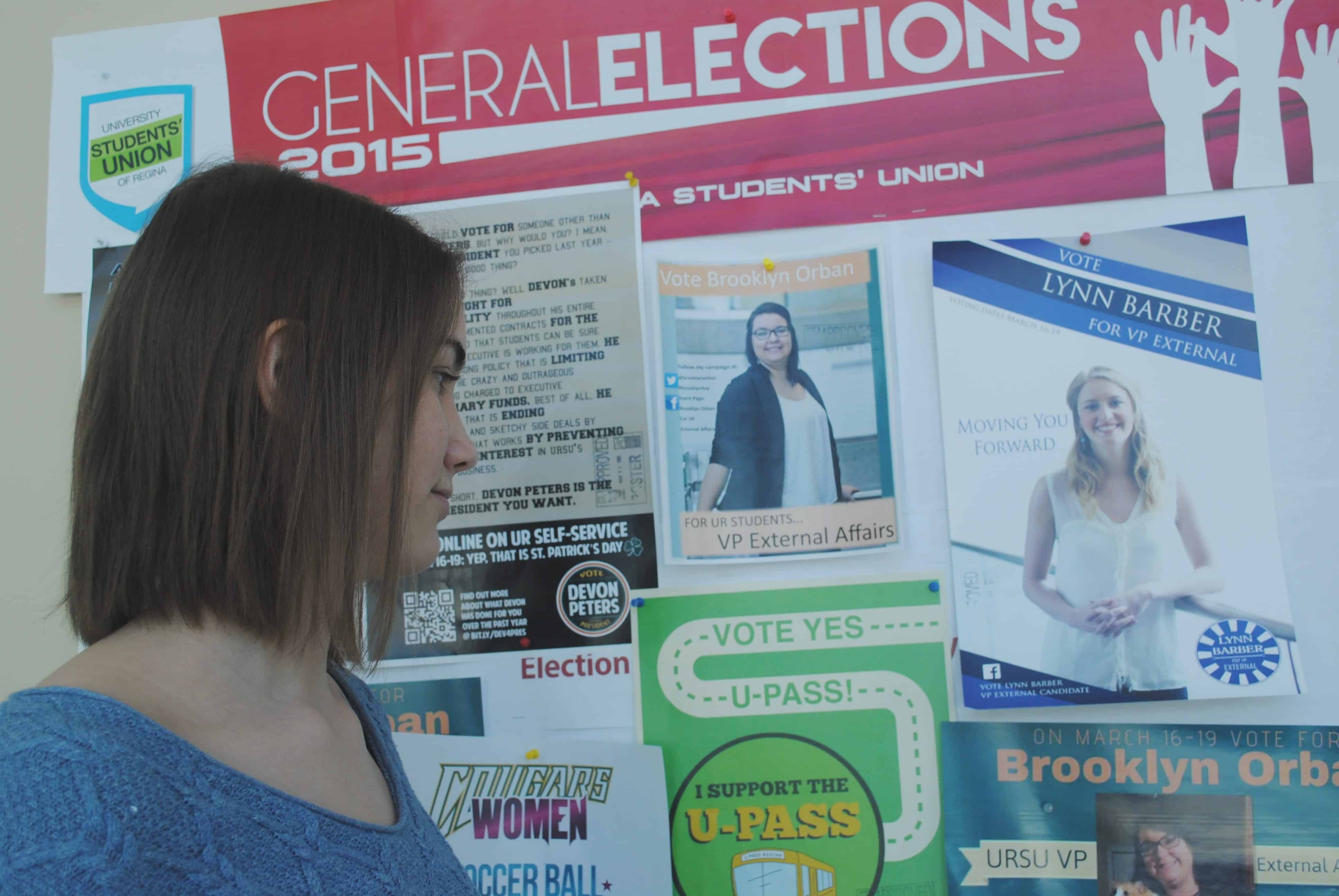
UR Pride hopes for guaranteed funding
Lauren Golosky
News Writer
Many groups and organizations on campus receive their money from tuition fees, which means their annual funding is guaranteed. That’s not the case for UR Pride, the University of Regina’s Centre for Sexuality and Gender Diversity. Instead, UR Pride receives its funding directly from the U of R student’s union, in a process requiring them to apply for money every year.
UR Pride hopes to change that this academic year, starting with a petition it hopes will help put the organization on the right track for stable funding.
“We need roughly 600 signatures,” said UR Pride executive director Lisa Smith. “The next step will be having the actual vote, and we’re hoping to do that in January, but it’s at the discretion of URSU.”
If the petition garners the compulsory number of signatures , Smith said it will be taken to the students’ union, which will then hold a referendum for students on campus to decide the fate of UR Pride’s funding. If students vote in favour of changing the organization’s funding, a small fee coming out of student tuition would be established. For full-time students, the fee would be $1.00, with the fee for part-time students half that
“As a non-profit organization, it’s very important to have stable funding,” Smith said. “Without stable funding, we have to reapply every year. Therefore, we have to worry about losing the money that we get, losing the programming that we do, and firing the person who works for us.”
Smith believes that, by eradicating the hassle to reapply for funding, the focus can be returned to where and how the money is spent.
“It will make sure everyone on URSU knows exactly what we do, so they are able to know that the money is going towards good things,” she explained. “The money [from funding] goes towards almost all the programming that we do. About a thousand goes to advertising, two thousand goes to events and providing a positive space, and about a thousand now currently goes to the Positive Space Network.”
Smith also explained that UR Pride spends money on informational resources for the students on campus, as well as safer-sex supplies. The resources are available for students and can be borrowed for research and casual purposes.
“We usually spend a thousand dollars towards resources, which goes towards the resource library,” Smith said. “It’s currently 1,500 books, articles, and pamphlets, which are open to students to come and see.”
UR Pride aims to host at least one event a month, including major ones like the Canadian University Queer Services Conference in 2012.
UR Pride, the university, and URSU are involved in hosting the event, which brings together campus queer services from across the nation. Smith said they have received grants for the event, so funding is not an issue. Other events that UR Pride host include Divas at the Owl, the annual drag show, and open mic nights.
Other parts of the UR Pride budget are allocated to hiring a full-time staff member to manage the range of services the organization provides, including counseling, advice, information, and peer support.
“Mostly, what we do is provide services and we need someone to provide services,” Smith said. “Last year, we had about 700 volunteer hours going towards what we do.”
Matthew Lensen, URSU LGBTI director, agrees that it should be necessary to have a secure method of funding for UR Pride.
“UR Pride currently receives a portion of their funding from URSU, which is granted on a year-to-year basis and never guaranteed,” Lensen explained. “Non-guaranteed funding means it would be extremely difficult for them to offer their services that benefit many students in the community and across campus.
“Thousands of LGBTQI university students across Canada, and millions worldwide, drop out of school due to harassment…and discrimination in classes and in the workplace,” Lensen said. “[Some] even commit suicide from the extremely tough situations they come across from family, peers, and everyday life.
“One of UR Pride’s main initiatives is to provide counseling, advice, information, and even just friendship to students of all genders, sexualities, and cultural backgrounds.”
Lensen also believes that protecting these services by establishing guaranteed funding would benefit the university community as a whole, not exclusively LGBTQI students.
“The guaranteed services will help students keep feeling safe and confident in their own bodies,” he said.









